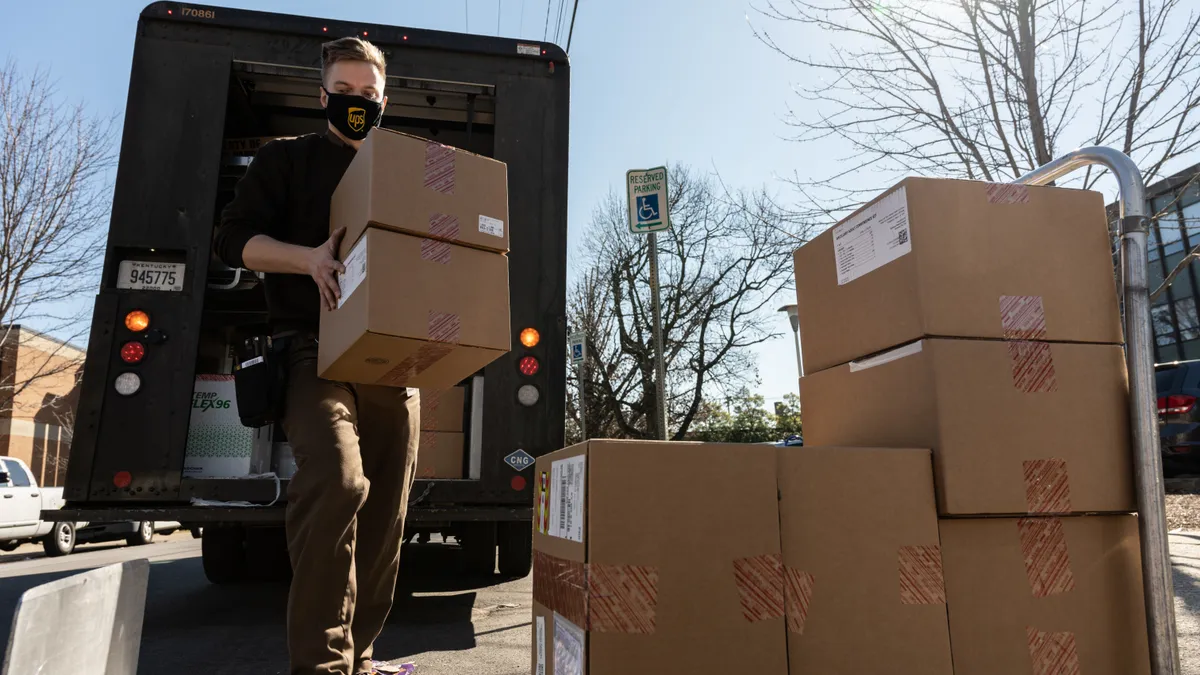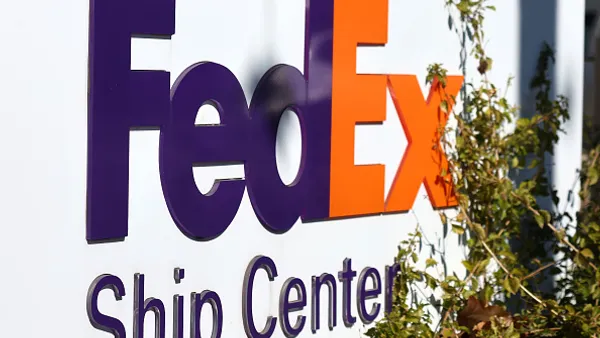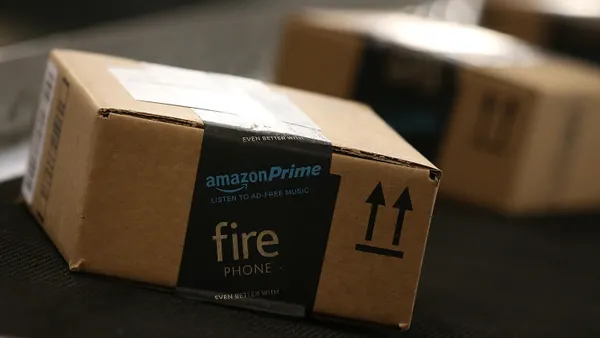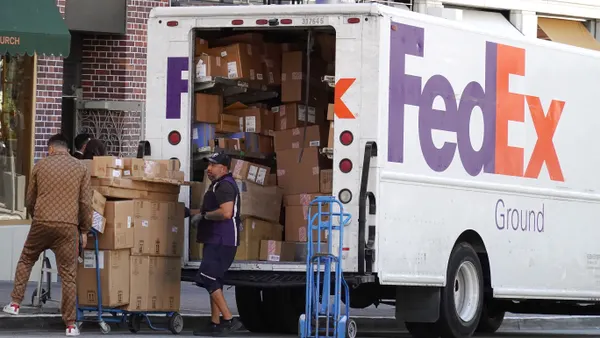UPS is boosting its healthcare logistics business through in-house expansion and outside acquisitions as it looks to grow its package delivery activity in more profitable and less volatile sectors.
Coinciding with that strategy is an ambitious goal: The carrier wants to reach $20 billion in annual healthcare revenue by 2026 — doubling what it made in 2023.
"I'm not going to lie, there's some anxiety around that target, for sure," Daniel Gagnon, VP of global strategy and acquisition at UPS Healthcare, said of the goal. "So it is a very, very big ask."
But Gagnon said the UPS Healthcare team is confident it can double revenue by striking the proper balance between organic growth and inorganic growth.
In terms of organic growth, or expanding its network and capabilities on its own, UPS has targeted Europe this year. UPS opened its first dedicated healthcare facility in Ireland and expanded its flagship Netherlands facility with added ultra-cold storage capabilities to meet the needs of complex biopharma products.
Recent examples of inorganic growth, or acquisitions, for UPS' healthcare logistics business are numerous, featuring several providers with robust cold chain capabilities spanning several countries.
Recent healthcare logistics acquisitions by UPS
| Acquisition | Capabilities |
|---|---|
| MNX Global Logistics | Radio-pharmaceuticals and temperature-controlled logistics |
| Bomi Group | Temperature-controlled facilities in 14 countries |
| Transports Chabas Santé's healthcare logistics unit | Temperature-controlled transportation solutions for pharmaceutical and healthcare products in Southern France |
| Frigo-Trans* | Temperature-sensitive and time-critical pharmaceutical logistics across Europe |
*The Frigo-Trans acquisition is expected to close in the first quarter of 2025.
Both organic and inorganic growth have their own distinct benefits, but UPS will generally lean on inorganic healthcare growth in instances where it needs to scale quickly or develop local expertise it may not have yet, Gagnon said.
"There are literally 27 European Union countries, and they all have a different interpretation of how things need to be executed, whether it's regulatory or from a customer perspective," Gagnon said. "So that local knowledge is really important."
Acquisitions require extra legwork in terms of learning about customers coming over from the previous owner. When UPS gains new shippers from buying a company, it meets with them to gain a better understanding of their business priorities — be it expansion or tamping down costs — and build a logistics strategy that aligns with their goals, Gagnon said.
This added effort is worth it for UPS, as healthcare offers more profitable deliveries compared to other customer segments like e-commerce. CEO Carol Tomé said during the company's investor day in March that margins for healthcare services are in the high teens. A boost in healthcare deliveries could soften the revenue per package pressures coming from e-commerce shippers like Temu and Shein.
Healthcare also provides consistent demand compared to the retail sector. Retailers offer delivery networks a surge of packages during the peak holiday shipping season, but they're also more exposed to the ebbs and flows of the economy, according to Gagnon.
"Healthcare tends to be very stable," Gagnon said. "It's not recession proof, but it's recession resistant, so it does tend not to vary as much with the economy."
Other carriers are also drawn to the healthcare sector's appealing characteristics, and they are strengthening their own logistics capabilities as a result. FedEx secured over $500 million in "quality" healthcare business in fiscal year 2024 and is seeing strong demand in the sector for its FedEx Surround service, a platform offering real-time shipping visibility. DHL launched a new cold chain service in 2023 used by titans in the healthcare space like Siemens and Eli Lilly.
Gagnon said UPS uses its end-to-end suite of services to woo major manufacturers for medical devices, pharmaceuticals and more. While top healthcare customers' needs vary, they're often looking for a logistics partner who can provide high levels of visibility and on-time consistency, he added.
One product Gagnon said addresses that need is UPS Premier, which uses RFID and cellular sensor technology to notify its network operators that a package has urgent or temperature-sensitive materials inside. It can also provide precise location information, such as where a package is on an aircraft, for easy intervention if inclement weather or other issues occur during the shipping process. This can help get potentially life-saving shipments to their end recipient even in difficult conditions.
"It allows me as an operator to make sure that every single one of those packages is moving on to its next place," Gagnon said.














